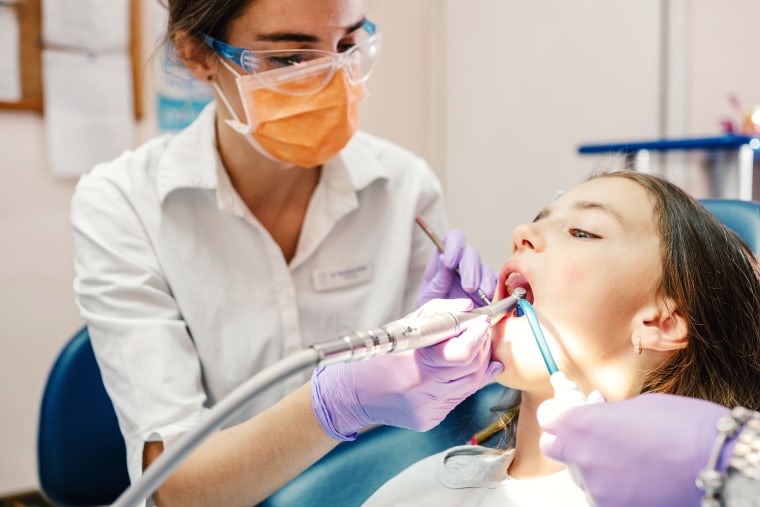The Centers for Disease Control and Prevention on Monday issued a health advisory about waterborne bacteria in dental plumbing systems after children who visited pediatric dental clinics were infected with nontuberculous Mycobacteria.
The most recent suspected outbreak occurred in March, after two were confirmed in 2015 and 2016, the CDC said.
Nontuberculous Mycobacteria, or NTM, can cause serious infections in the lungs, skin, lymph nodes or blood, according to the CDC. The bacteria is found naturally in soil, dust and water, but in some moist environments, the microorganisms can clump together and stick to surfaces, forming biofilms that are difficult to eliminate.
Dental waterlines have a particularly high risk of developing these biofilms, according to the CDC, because of their "long, small-diameter tubing and low flow rates used in dentistry and the frequent periods of stagnation."
The cluster of suspected NTM infections identified in March arose among patients of the same pediatric dental facility. The CDC did not disclose the facility's location and did not immediately respond to a request for additional information about that outbreak. But the investigation, which is ongoing, has thus far revealed that the microbial counts in a dental waterline at the facility were much higher than the recommended level, the CDC said.
In 2016, a similar outbreak was linked to a pediatric dental clinic in Orange County, California. There, 71 patients were diagnosed with infections after pulpotomy procedures, which treat decaying baby teeth. The year before, 24 children got NTM infections after receiving dental care from a clinic in Georgia.
The children sickened in those two outbreaks were 4 to 8 years old and developed severe infections, some requiring hospitalization or surgery. Some were left with "permanent tooth loss, hearing loss, facial nerve palsy and incision fibrosis," according to the CDC.
The agency recommends that dental clinics treat their waterlines regularly with disinfectants and monitor water quality to ensure it meets the Environmental Protection Agency's safety standards.
"Dental providers should consult with the dental equipment manufacturer for appropriate methods and equipment to both maintain and monitor the quality of dental water," the CDC said.
Additionally, all dentist office staff should receive training on how to maintain and monitor water quality when they are hired and when new equipment is purchased, then at least annually after that. Patients, meanwhile, are encouraged to ask their dental providers about their infection prevention practices.
If left untreated, dental water can also breed other bacteria, including Legionella.

